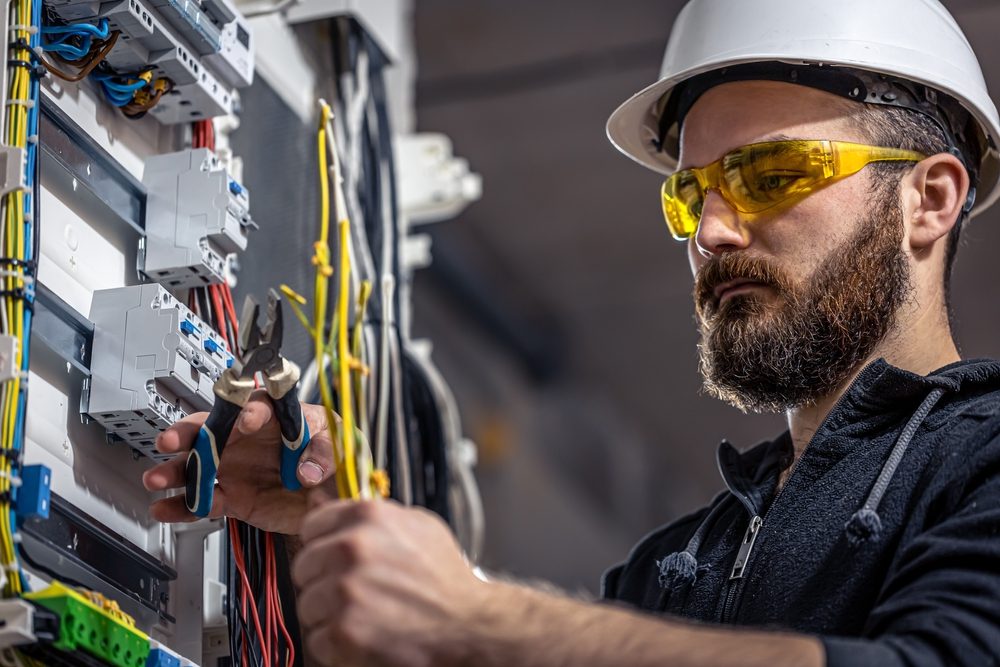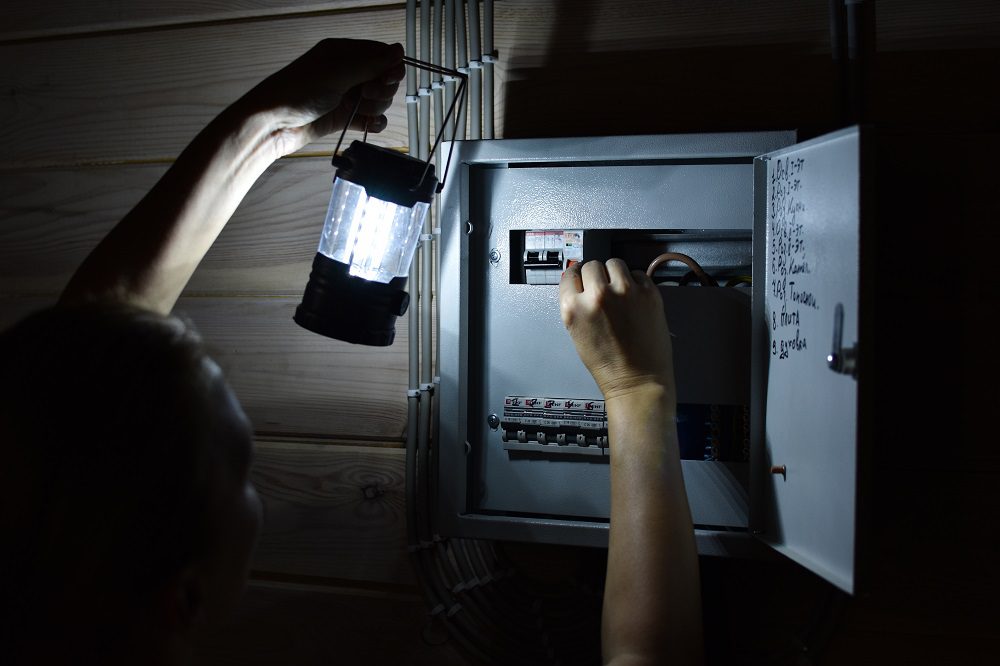Why Rewiring Becomes Necessary in Older Charlotte Properties
Older homes in Charlotte carry a charm that new builds cannot match. Many were wired decades ago, long before today’s appliances, home offices, and EV chargers. That gap between original design and current load is where problems start. A home can look solid from the curb yet hide brittle insulation, undersized circuits, and outdated panels that create real safety risk and day-to-day frustration.
How wiring ages in Charlotte homes
Charlotte’s housing stock spans pre-war bungalows in Dilworth and Plaza Midwood, 1950s ranches in Madison Park, and 1970s colonials in SouthPark and Providence Plantation. Each era used different wiring methods. Cloth-insulated conductors, aluminum branch circuits from the late 1960s and 1970s, and two-prong outlets show up often during inspections. Heat, humidity, and minor rodent activity add wear. Over time, insulation cracks, connections loosen, and resistance rises, which translates to heat at outlets and panels.
A common pattern appears during heavy use. A toaster and microwave trip a breaker in Elizabeth. The bedroom lights flicker in Wilmore when a window AC starts. A breaker hums in a Chantilly panel box. These are real signals that wiring has reached its limits or connections are failing.
Clear signs it is time to consider rewiring
Small symptoms tend to cluster. If a home shows several, a full assessment is wise.
Frequent breaker trips or fuses blowing under normal use Warm or discolored outlets and switches, or a burning odor Two-prong, ungrounded receptacles throughout the house Aluminum branch wiring or knob-and-tube discovered during work Flickering lights tied to appliance start-up or HVAC cycling
One or two issues can point to a simple electrical wiring repair service. When issues repeat across rooms or circuits, whole-home rewiring becomes the safer and more practical path.

What rewiring solves that repairs cannot
Repairs fix a point of failure. Rewiring corrects the system. A modern home needs sufficient ampacity, grounding, AFCI and GFCI protection, and balanced circuits for electronics and high-load appliances. Rewiring brings the property in line with current NEC standards and the Mecklenburg County code, which reduces nuisance trips, improves surge tolerance, and cuts fire risk.
Grounding is a major upgrade. Many older Charlotte homes still have two-prong receptacles that cannot safely serve computers or modern appliances. Rewiring with grounded conductors and new devices stabilizes voltage and protects sensitive equipment. For homes with aluminum branch circuits, a full copper rewire removes the ongoing maintenance burden of special connectors and paste at every termination.
Typical scope inside older Charlotte properties
Every home is different, but patterns repeat on projects across Myers Park, NoDa, and Enderly Park. A whole-home rewire usually includes a new service panel sized for present and future loads, copper branch circuits to all rooms, tamper-resistant receptacles, dedicated circuits for kitchen appliances and laundry, and GFCI/AFCI protection as required. Bathrooms, kitchens, garages, exterior outlets, and unfinished basements get GFCI. Bedrooms and living areas receive AFCI.
Homeowners often add convenience while walls are open. Common adds include extra kitchen countertop circuits for small appliances, whole-house surge protection, a 240V circuit for an EV charger in a Montford garage, or a dedicated circuit for a home office in Ballantyne. Thoughtful circuit planning during rewiring reduces extension cords and splitter strips that clutter floors and create trip points.
Timelines, disruption, and tidy work
A full rewire in a 1,800 to 2,400 square foot home usually takes 5 to 10 working days with a coordinated crew, plus inspection windows. Occupied rewires are possible with careful staging, dust control, and daily clean-up, though vacant properties allow faster progress. Plaster and lathe walls in older Dilworth bungalows call for more surgical fishing and patching. Drywall repairs are part of most projects; a clear plan for patch and paint keeps the finish smooth.
Expect a few planned power shutdowns during panel changeover and circuit tie-ins. A good electrical wireman explains the schedule upfront, keeps critical appliances powered as long as practical, and restores service each evening when feasible.
Electrical wiring Charlotte NC cost: what drives the numbers
Pricing reflects square footage, access, panel capacity, device count, finish materials, and code-driven protection. In Charlotte, residential electrical wiring costs for a full rewire commonly land in broad ranges:

Small cottages or bungalows: often in the mid-teens to low $20Ks Mid-size homes: low to mid $20Ks to mid $30Ks Large or complex layouts: upper $30Ks and above
Homes with plaster walls, finished basements, or tight crawlspaces cost more due to labor and careful fishing. Aluminum-to-copper rewires can add time at device terminations. Panel upgrades, surge protection, and EV-ready circuits add value and cost. A precise quote follows an on-site assessment, circuit count, and permit requirements from Mecklenburg County Code Enforcement.
For partial projects, such as rewiring a kitchen during remodel or converting a two-prong house to grounded receptacles where feasible, electrical wiring services are priced by circuit count and access. Ewing Electric Co documents options so the homeowner can weigh immediate needs against future plans.
Safety code updates that matter in older homes
Many owners focus on outlets and lights, yet protection devices do the quiet heavy lifting. Arc-fault protection reduces fires from damaged cords and loose connections. Ground-fault protection protects people from shock near water. Bonding and grounding bring metal boxes and equipment to the same electrical potential. Smoke and CO alarms have placement, interconnect, and power rules that older homes miss. Rewiring brings all of this current without piecemeal compromises.
Repair or rewire: making the call
It is reasonable to start with repair if the home has isolated faults, such as a single overheating receptacle, a bad GFCI in electrical wiring Charlotte NC the garage, or a loose neutral in a lighting circuit. Repairs run fast and keep budgets in check. The tipping point arrives with systemic weaknesses: widespread two-prong outlets, recurring tripping, aluminum branch circuits showing heat damage, or visible cloth insulation shedding at every device. At that stage, rewiring Charlotte NC homes provides a stable base for decades and reduces recurring service calls.

What a homeowner can do now
Before any work, a homeowner can make a simple, safe inventory. Walk room by room and note warm plates, discolored devices, buzzing sounds, and any burning odor. Open the panel door and look for rust, scorched labels, or multiple wires under one screw. Take clear photos. This helps an electrician prepare for the visit and speeds quoting.
Why choose a local, code-focused team
Charlotte homes are subject to Duke Energy service standards and Mecklenburg County permitting and inspections. Familiarity with local inspectors and typical framing styles in neighborhoods like Sedgefield and Commonwealth helps an electrician run clean, efficient projects. Ewing Electric Co focuses on neat work, sharp labeling in the panel, and clear documentation for insurance and resale. That attention shows up later when an appliance installer or home inspector opens the panel and finds organized circuits and readable schedules.
Getting an accurate estimate fast
Homeowners often search “electrical wiring near me” and see a wide range of promises. Accurate pricing requires a short on-site visit. Ewing Electric Co maps circuits, discusses current use and near-term plans, and explains options in plain language. The team outlines the permit path, inspection timeline, daily work hours, and any temporary power needs. If the property is occupied, they plan room-by-room to limit disruption.
For straightforward issues, the company offers electrical wiring repair service with transparent, up-front pricing. For larger projects, they detail residential electrical wiring Charlotte NC scope, materials, and schedule so owners can plan with confidence.
Straight answers to common questions
Homeowners ask if insurance requires a rewire. Insurers often flag aluminum branch wiring, knob-and-tube, or significant ungrounded circuits, and may condition coverage on correction. Another frequent question is whether plaster must come down. In many cases, strategic access and careful fishing limit wall openings; however, some plaster patching is normal. Owners also ask about AFCI nuisance tripping. Proper device selection and correct terminations minimize false trips while preserving safety.
Ready to talk through your home’s wiring?
Whether the house sits in Wesley Heights, Steele Creek, or University City, a short assessment can reveal if repair or rewire is the right move. Call Ewing Electric Co to schedule an on-site visit, request pricing for electrical wiring services, or ask about electrical wiring Charlotte NC cost for your specific layout. A licensed electrical wireman will walk the home, explain findings clearly, and provide a detailed plan that fits the property and budget.
Ewing Electric Co provides dependable residential and commercial electrical services in Charlotte, NC. Family-owned for over 35 years, we handle electrical panel upgrades, EV charger installation, generator installation, whole-home rewiring, and 24/7 emergency repairs. Our licensed electricians deliver code-compliant, energy-efficient solutions with honest pricing and careful workmanship. From quick home fixes to full commercial installations, we’re known for reliable service done right the first time. Proudly serving Charlotte, Matthews, Mint Hill, and nearby communities.
Ewing Electric Co
7316 Wallace Rd STE D
Charlotte, NC 28212, USA
Phone: (704) 804-3320
Website: https://ewingelectricco.com/ | Electric Company in Charlotte
Social: Facebook | Instagram | Twitter | LinkedIn | Yelp | Angi | BBB
Map: View on Google Maps